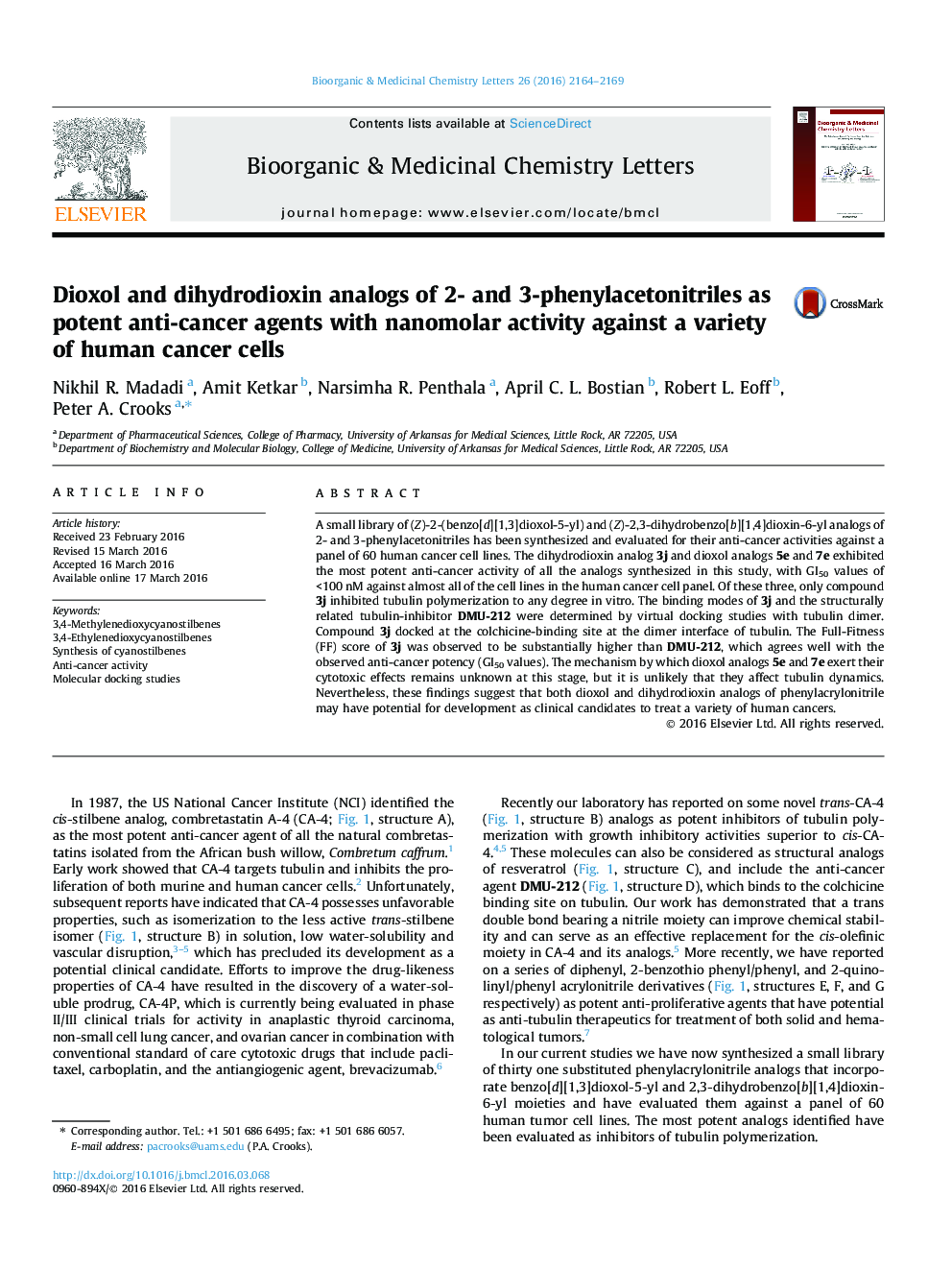| کد مقاله | کد نشریه | سال انتشار | مقاله انگلیسی | نسخه تمام متن |
|---|---|---|---|---|
| 1368585 | 981704 | 2016 | 6 صفحه PDF | دانلود رایگان |
• Synthesized a variety of novel dioxol and dihydrodioxin analogs of 2- and 3-phenylacetonitriles.
• Evaluated the novel analogs for their anti-cancer activity against the NCI 60 human cancer cell panel.
• Carried out in silico docking studies at the colchicine binding site on tubulin to rationalize the anti-cancer properties of the synthesized compounds.
• Tubulin polymerization assays were conducted to establish further the mechanism of action.
• Analogue 3j showed promising anticancer activity against most of the cancer cells with GI50 of <100 nM.
A small library of (Z)-2-(benzo[d][1,3]dioxol-5-yl) and (Z)-2,3-dihydrobenzo[b][1,4]dioxin-6-yl analogs of 2- and 3-phenylacetonitriles has been synthesized and evaluated for their anti-cancer activities against a panel of 60 human cancer cell lines. The dihydrodioxin analog 3j and dioxol analogs 5e and 7e exhibited the most potent anti-cancer activity of all the analogs synthesized in this study, with GI50 values of <100 nM against almost all of the cell lines in the human cancer cell panel. Of these three, only compound 3j inhibited tubulin polymerization to any degree in vitro. The binding modes of 3j and the structurally related tubulin-inhibitor DMU-212 were determined by virtual docking studies with tubulin dimer. Compound 3j docked at the colchicine-binding site at the dimer interface of tubulin. The Full-Fitness (FF) score of 3j was observed to be substantially higher than DMU-212, which agrees well with the observed anti-cancer potency (GI50 values). The mechanism by which dioxol analogs 5e and 7e exert their cytotoxic effects remains unknown at this stage, but it is unlikely that they affect tubulin dynamics. Nevertheless, these findings suggest that both dioxol and dihydrodioxin analogs of phenylacrylonitrile may have potential for development as clinical candidates to treat a variety of human cancers.
Figure optionsDownload as PowerPoint slide
Journal: Bioorganic & Medicinal Chemistry Letters - Volume 26, Issue 9, 1 May 2016, Pages 2164–2169
